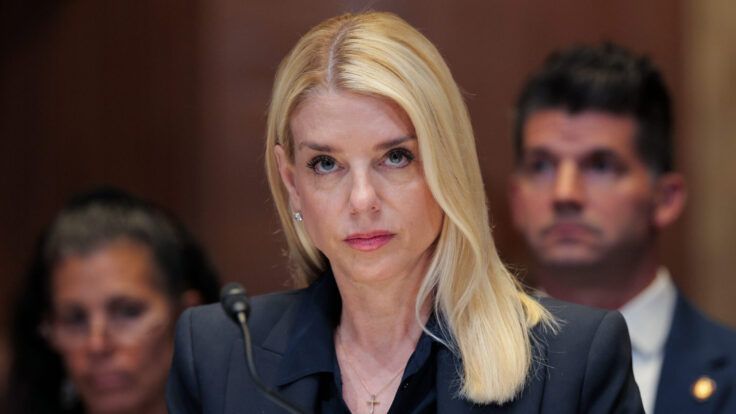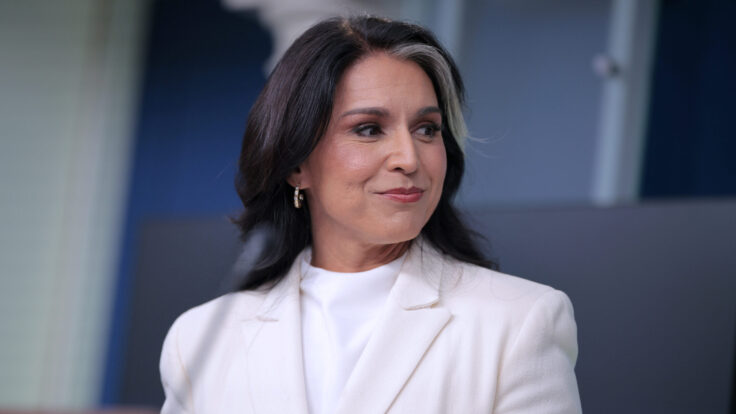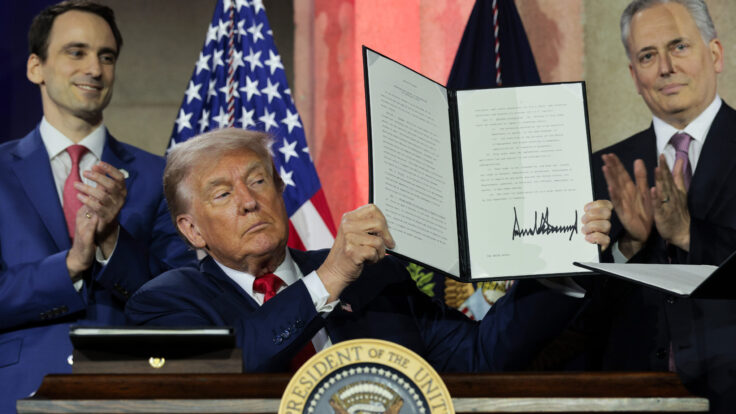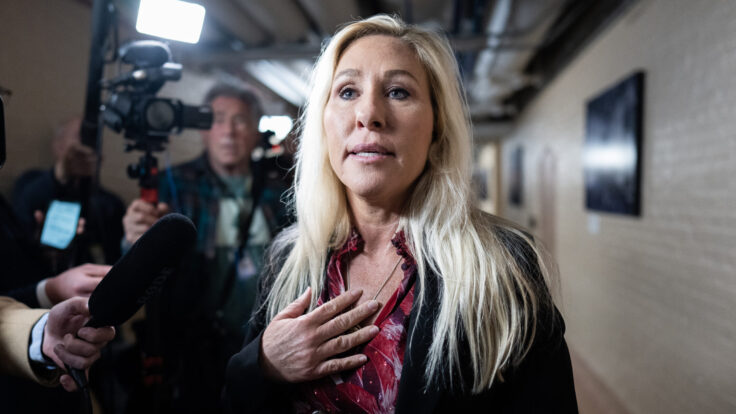 |
|
Welcome back to The Best & The Brightest, I’m Tina Nguyen. In tonight’s edition, we spin through Iowa, New Hampshire, and the wild world of right-wing social media—a conglomerate of spaces in, as Ron DeSantis’s campaign recently dubbed it, the world of “Magadonia.” (Frankly, I’m kicking myself for not coining the term in the past eight years, so props to them).
But first… an update from my partner Eriq Gardner, Puck’s resident legal expert (sign up for his weekly email here), on an unexpected twist in Donald Trump’s path back to Twitter…
|
|
|
| Could Donald Trump’s return to Twitter be imminent? That’s the buzz I’ve been hearing from legal insiders who suggested I check out his contractual arrangement with Truth Social. Trump, after all, is currently legally obligated to give his own social media service a six-hour exclusive on anything he posts. Presumably, that’s why Trump has held back from exercising his power to tweet after Elon Musk lifted his “permanent” suspension last November.
But here’s the thing: Trump’s 18-month exclusivity term ends the first day of this summer so long as he gives notice. If not, and he sits on his hands, then the exclusivity term automatically extends another 180 days. So if the Trump campaign wants to preserve its optionality to begin using Twitter again (in a more impactful way, at least), then the candidate has to speak up soon. Would he really pass on that opportunity for half a year, ceding his megaphone on the platform (faulty as it might be) to Ron DeSantis?
Notably, Trump still has an active lawsuit against Twitter for suspending him in the first place. While U.S. District Judge James Donato dismissed that complaint alleging a First Amendment violation in May 2022—the California judge ruled that Trump hadn’t plausibly alleged Twitter was acting as a government entity—Trump’s legal team has pointed both the District Court and the 9th Circuit to the “Twitter files” and what Musk himself has been saying about government involvement in Twitter’s affairs. They argue these new revelations show that Biden officials coerced censorship.
On Thursday, Twitter told Donato that it’s all moot anyway since Trump’s account has been reinstated. Trump’s legal team argues that it’s not moot because Musk could change his mind. As such, they are pushing to get Donato to at least indicate he’d be willing to entertain new allegations so those could be properly considered on appeal. Ultimately, Trump wishes to move forward in a suit that demands his account not only be reinstated, but also without warning labels. The bid is a huge long shot—Twitter is a private company, after all—but like an old lover who is peeking at a former flame’s social media activity, it shows that Trump very much still cares. —Eriq Gardner
And now, on to the main event… |
|
|
| Conventional wisdom suggests it will be difficult for Ron DeSantis to close his monumentally lopsided polling gap to Donald Trump without throwing some punches, and taking a few in return. The delta between the two candidates is particularly pronounced at the national level, where the former president leads by around 30 points, depending on how the average of the polls are weighted. But the difference isn’t quite as daunting in early primary states, where DeSantis is 18 or so points behind in Iowa, for example, and 21 points behind in New Hampshire. If the Florida governor’s plan is to win one or two of those contests, in order to slingshot his momentum into an unstoppable force, DeSantis will need a message that resonates not just at the national level but, critically, at the state level as well.
So far, the DeSantis campaign’s national strategy appears to coalesce around a word cloud of culture war talking points meant to galvanize the far right: cultural Marxism, corporate wokeism, D.E.I. madness, L.G.B.T. overreach, and so forth. In a Churchill-inspired campaign speech about the “woke mind virus” last week, DeSantis used the word “woke” so many times that it became a punchline in the media and on the left. (Trump himself seemed to take a crack at DeSantis for his overuse of the term, saying: “I don’t like the term ‘woke,’ because I hear ‘woke, woke, woke…’ It’s just a term they use. Half the people can’t even define it. They don’t know what it is.” Indeed.)
But at the state level, DeSantis appears to be leaning into messaging that does draw real distinctions with the former president—and, yes, occasionally takes a tentative swing or two. The DeSantis campaign is now directly attacking Trump for his approach to Covid: his waffling and inconsistency on public health measures; initial support for travel bans and other pandemic mandates; wavering but continual support for Dr. Anthony Fauci; and, most remarkably, his advocacy and promotion of life-saving vaccines. “The way they weaponized these Covid vaxes was a massive incursion into our freedoms,” DeSantis said at one recent event. “We can never allow ‘Warp Speed’ to trump informed consent in this country ever again.”
Trump countered with a statement, including a photo of DeSantis wearing a mask, essentially accusing the governor of hypocrisy (“he personally oversaw mass vaccinations and imposed radical lockdowns”). DeSantis then punched back, again, boasting at a press conference that Trump’s “whole family moved to Florida under my governorship.” And on and on it’s gone.
This contretemps has taken a backseat to media coverage of DeSantis’s well-recorded retail awkwardness on the campaign trail, and breathless discussion of whether he has the proper personality and vibes to take on the ultimate political entertainer and verbal brawler, whose blunt-force charisma famously annihilated another well-funded Republican Florida governor (Jeb!). But relitigating Covid issues is perhaps the best wedge issue available to DeSantis as he seeks inroads in early primary states where conservatives’ collective anger over pandemic-era business restrictions and mask mandates is still white hot.
That message may be especially resonant in Iowa, where Republican governor Kim Reynolds notably refused to endorse mask mandates during the early days of Covid or close businesses. It was initially an unpopular move, circa 2020—when the death rate was highest and vaccines were not yet available—but eventually proved popular, at least on the right. Reynolds’ approval ratings in the state ultimately moved in a positive direction by 2021, after vaccines became more widely available and as the public began to sour on mask mandates. Reynolds later cruised to an easy re-election in the 2022 governors’ race with a beefy 19-point lead over her Democratic rival, roughly the same margin by which DeSantis won re-election in Florida.
“People there have been watching and paying attention to DeSantis for a while because Covid has been a huge thing here, because Kim did it really well,” a Republican consultant in Iowa told me. “So it magnifies him on the ground.” And if DeSantis allies himself closely with the popular Republican governor, it could be a major boost. “I don’t think DeSantis is beatable in Iowa unless [the campaign] absolutely screwed up, unless they're operationally screwed up,” the consultant continued—a bold prediction when DeSantis is nearly 20 points behind. “I mean, he could also fall on his face in the debate, but it would still put him right up there.” |
| And Now Some Thoughts on Elon…. |
|
| Twitter, as it turns out, might not yet be Elon Musk’s fantastical cancellation-free right-wing content utopia, after all. Last Thursday, Jeremy Boreing, the C.E.O. of the conservative entertainment company The Daily Wire, tweeted a long thread that publicly aired his discontent with Musk’s new toy. Boreing’s beef was that the Wire had recently struck a $500,000 deal with Twitter to market their provocative documentary, What Is a Woman? on the platform—at least until Twitter, in his version of events, reneged at the last minute. The issue, according to Boreing, was that the film depicted two instances of “misgendering”—referring to a trans person by their pre-transition gender—and thus the video qualified as hate speech, ostensibly according to Twitter’s policy.
To an outsider, this might look like a right-wing temper tantrum over some minor cancellation nonsense, or yet another example of Elon mainstreaming lib-triggering viewpoints. But in the context of the national conservative discourse, it was received as a Judas-level betrayal. What Is a Woman? has been deeply influential on the right in driving the nationwide animus against transgender individuals and rights, not to mention Republican policy proposals and the rise of anti-trans laws. When the documentary first came out, in the summer of 2022, it was extensively promoted on Tucker Carlson Tonight and praised by Joe Rogan, who called the film “fucking amazing” and devoted an entire three-hour episode of his show to interviewing director Matt Walsh.
But Twitter, the company, has struggled to articulate a consistent policy on user and brand safety questions, especially in the wake of Musk’s decision to try to win back advertisers, formerly the backbone of 90 percent of Twitter’s business. Even though Musk quickly replied that the film did not violate Twitter’s hate speech policies—a moving target, apparently—it took an entire day for the company to remove the “hateful content” warning from the Wire’s tweet promoting What Is a Woman?, thus allowing it to be freely retweeted derisively. Musk later offered an olive branch by retweeting a link to the Daily Wire documentary (“Everyone should watch this”) and pinning it to his personal account, later suggesting that the Streisand Effect had made the film even more popular and viral.
Nevertheless, this episode raises real questions about whether Musk can maintain his image as a free speech warrior while repairing Twitter’s deeply damaged finances. Internally, three high-level executives left the company over the incident. Financially, I’ve learned that the original transaction between The Daily Wire and Twitter was voided, and that Twitter did not ultimately advertise the film. That’s pretty bad news, considering that Twitter has lost 59 percent of its U.S.-based advertising revenue since last year. And Musk now has a new addition to his multi-hyphenate reputation among conservatives: free-speech prevaricator. The Federalist, in particular, is going on an anti-Musk tear, with C.E.O. Sean Davis blasting Musk’s decision, accusing him of peddling in “lofty rhetoric and grandiose plans” while running a company that was “the same anti-free speech cesspool it was in 2020,” and urging conservatives to stop paying for Twitter Blue.
How does Musk repair his reputation on the hard right, which is ever more important to his business (if toxic to advertisers), having alienated the left? By pointing to his own economic sacrifice, of course. “Half of our advertising disappeared overnight because we’re insisting on free speech… they’re literally trying to drive Twitter bankrupt,” he announced on Monday, shortly after Fidelity publicly wrote down its valuation of Twitter to $15 billion, or about a third what Musk originally paid for it. That sort of spin might play with the followers of other free speech ideologues. But I’d imagine that their patience with the world’s richest man to deliver on his promise of free-speech Twitter is running short. |
|
|
|
| FOUR STORIES WE’RE TALKING ABOUT |
 |
|
 |
| President Dimon? |
| On the inside chatter percolating around the Core Club set. |
| WILLIAM D. COHAN |
|
 |
|
 |
| DGA’s Wet Ink |
| How will the fresh deal affect the writers’ strike? |
| JONATHAN HANDEL |
|
|
|

|
 |
|
|
|
Need help? Review our FAQs
page or contact
us for assistance. For brand partnerships, email ads@puck.news.
|
|
|
|
Puck is published by Heat Media LLC. 227 W 17th St New York, NY 10011.
|
|
|
|













